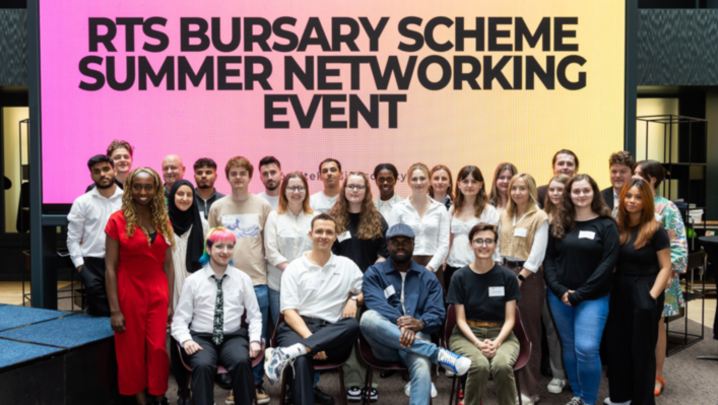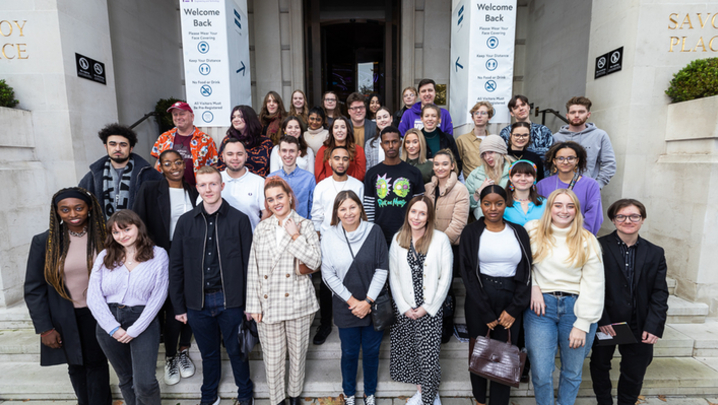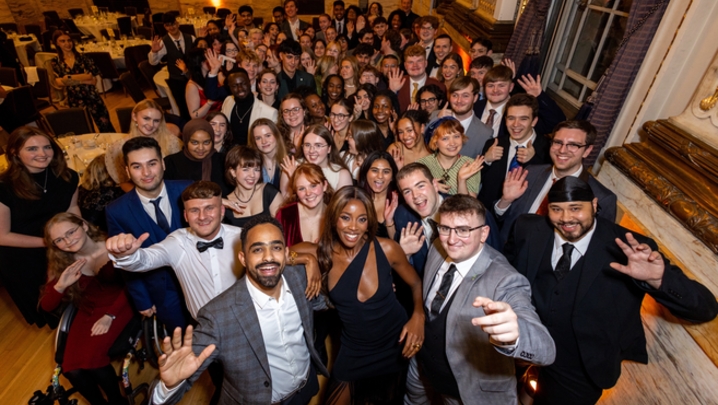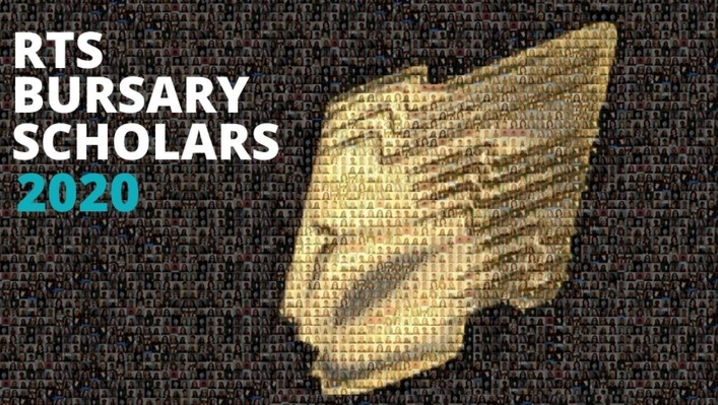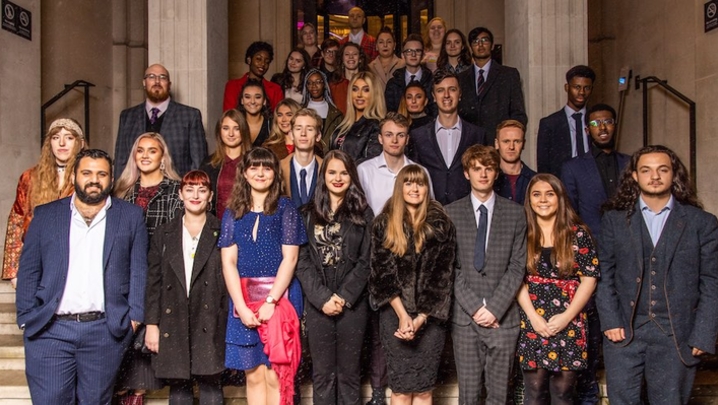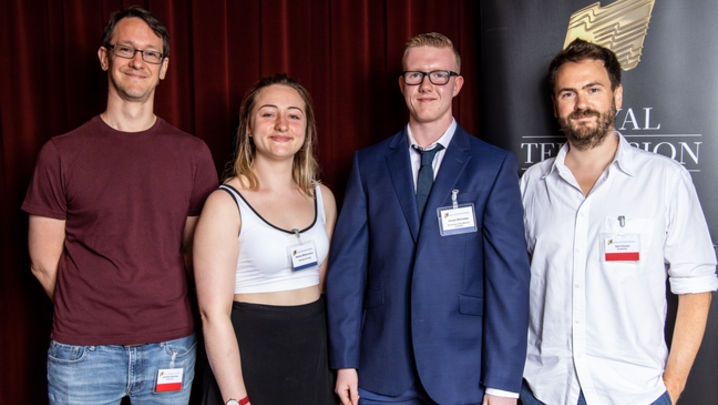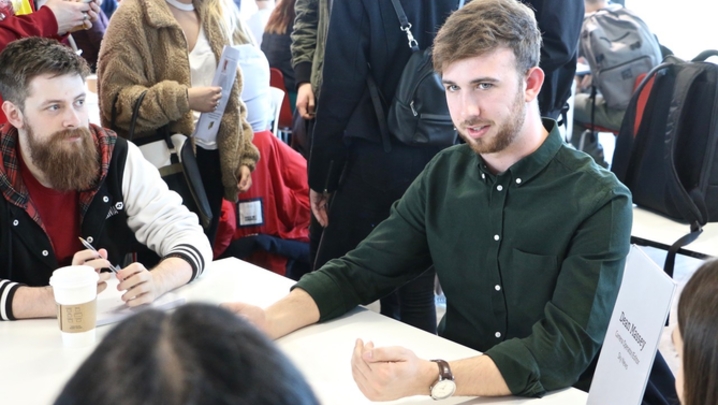RTS Bursary scholars and alumni share how their lives have changed since applying for the scheme, what they have learned about themselves and the industry, and why they think you should apply.
In late June, Fremantle UK hosted the RTS’s annual summer networking session, welcoming past and present RTS Bursary scholars to their London office. Alongside their personal mentors, the attendees connected and exchanged contacts with each other and industry professionals.
Scholars from the Digital Innovation Bursary also attended the event as part of their Summer Tour, a 10 day trip across London, the South East and Scotland where the scholars visit a different production company every day to learn how technology is revolutionising their companies, and see what jobs they offer.
In her welcoming speech, Emma Nicholson, Head of Education and Bursaries at the RTS, reflected on the success of the Bursary Scheme since its launch in 2013. “We are proud to say we have now supported nearly 300 talented students throughout their studies, with 80% going on to forge careers in television and media in an array of impressive roles from production management at Netflix, to development at Sister Pictures and multimedia journalism at ITV and Channel 4.”
David Anley
Computer Science at Cardiff University
Digital Innovation Bursary
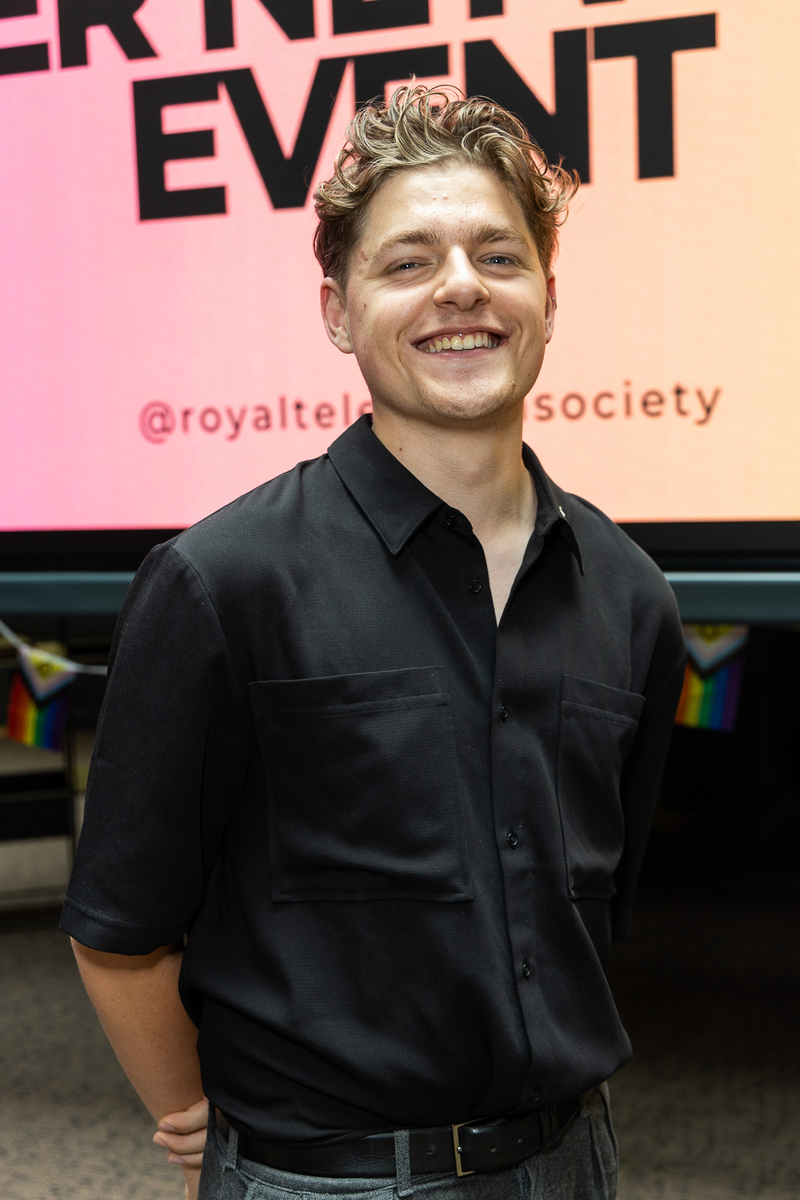
(Credit: Paul Hampartsoumian)
How do you think your University experience would have been different without the scheme?
I applied for the scheme back in June at the end of my first year. It's really revolutionised the way in which I view my career outside university. I think a lot about university is trying to find out what are you going to do with what you're learning.
I've been able to talk to so many different interesting individuals within the TV industry. After university, it's not a case of me trying to find a job that works, it’s going to be a job that I'm actually passionate about.
Has the bursary led to any work opportunities?
I have a mentor through the RTS, Peter Russell, who is Director of Technology at ITV, and I've been privileged enough to get a technology internship with ITV. It's spanning across some of the studio side, but also tech, so it's kind of a hybrid.
Watch David’s interview with his mentor Peter Russell here.
What are your favourite memories from the scheme so far?
I'm now on the RTS Wales Committee, which means that I'm able to see a lot more of what's going on around my university and get a much better insight into what a career in TV and film actually looks like. Without the RTS, I think my day-to-day would be so focused on my degree, whereas now with the scheme, it's all about TV and film.
What would you say to someone considering applying to the scheme?
The RTS is the best thing that’s happened to me and I would implore anyone that has the opportunity to apply. Applying is the first step to absolutely everything that I've done in the last year, and all that fun stuff I've been doing with the RTS, like events.
Josephine Bakewell
Experimental Film Production at Staffordshire University (graduated in 2020)
Television Production and Journalism Bursary
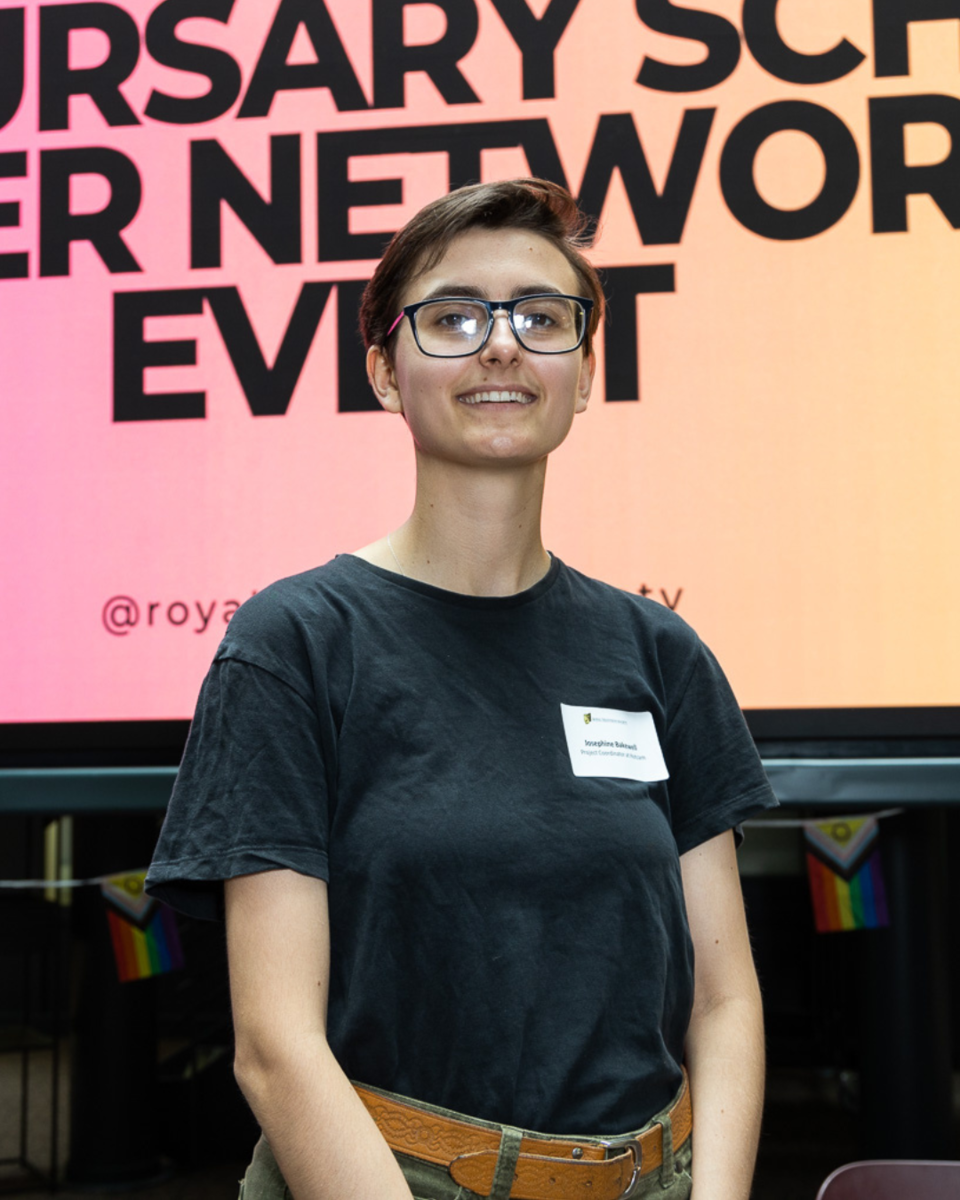
(Credit: Paul Hampartsoumian)
Did you have a mentor through the scheme?
Yes, I had a mentor from Tuesday’s Child Television [the UK-based independent production company] in my final year.
Did the scheme lead to any work opportunities for you?
The summer before my final year of uni, I gained some work experience at Tuesday’s Child, which was my first real break into the industry.
After that I did another internship in 2021. I was just over a year graduated, the internship was with Fremantle and I worked there for three weeks. Now I’m a project coordinator at Hotcam.
What would you say to someone considering applying to the scheme?
I definitely encourage it. Even if you end up not wanting to go into TV, you get to know loads of people and make loads of great contacts.
Saleem Miah
Filmmaking at Manchester Metropolitan University
Television Production and Journalism Bursary & 2023 Beryl Virtue scholar
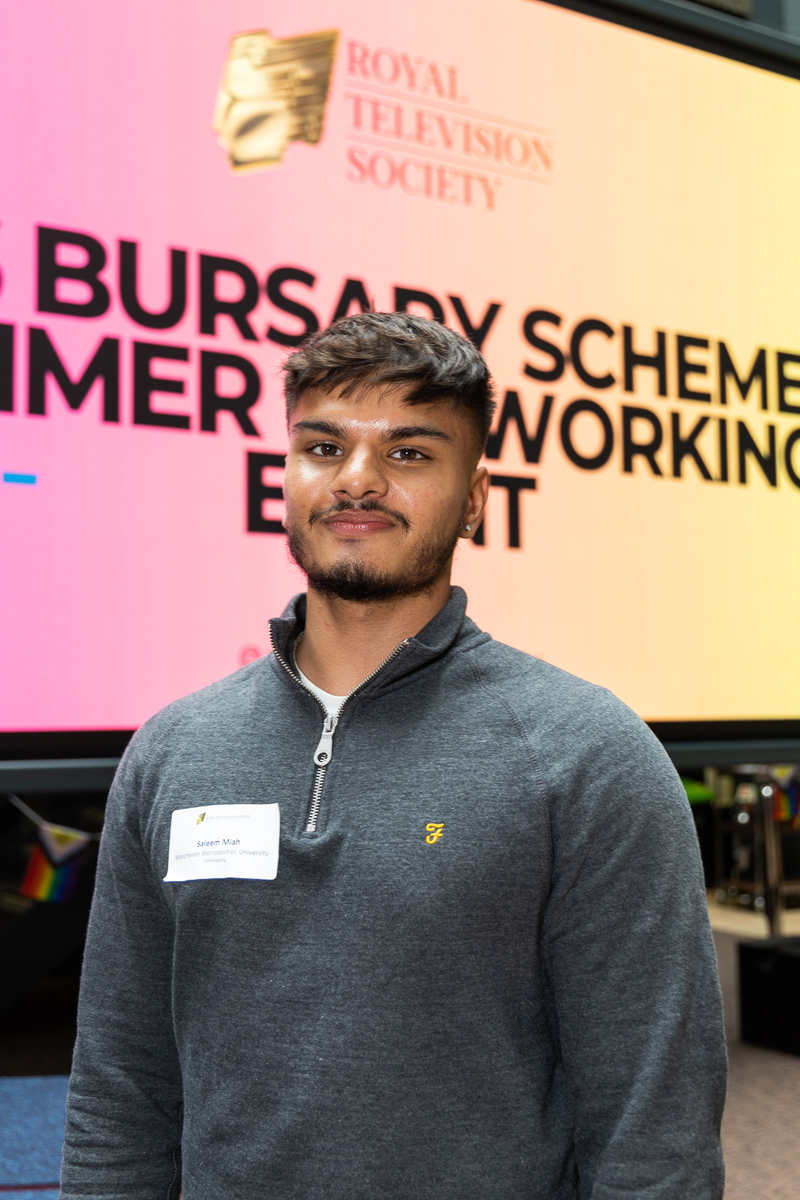
(Credit: Paul Hampartsoumian)
What does it mean to be a Beryl Virtue scholar?
Well, the Beryl Virtue scholarship was set up by Sue and Debbie Virtue, who run Hartswood films, to commemorate their mother Beryl Virtue who founded the company.
I get extra financial support and also support from Sue and Debbie. They’re always willing to answer questions and help out. Also, I've got work experience on one of their productions called The Devil's Hour, which I did during the Easter Holidays.
Did you use the bursary money for anything specific?
Last week, I did another work experience placement on Coronation Street in the editorial team. I didn't get paid for that, so the bursary meant that I could travel to it and covered the other expenses.
How do you think Uni would have been different without the scheme?
The work experience I’ve done - that would never have happened. I would have just been doing a course. What's good about the RTS scheme is that you get to do stuff outside of your course which prepares you for after you leave uni.
What would you say to someone considering applying to the scheme?
If you are interested in this sector, then this is literally made for people like you. Everyone's talked about how difficult it is to get your foot in the door, and these programmes are literally helping those individuals who face barriers, and certainly helped me.
Glodi Kuba-Kuba
Filmmaking at Salford University
Television Production and Journalism Bursary
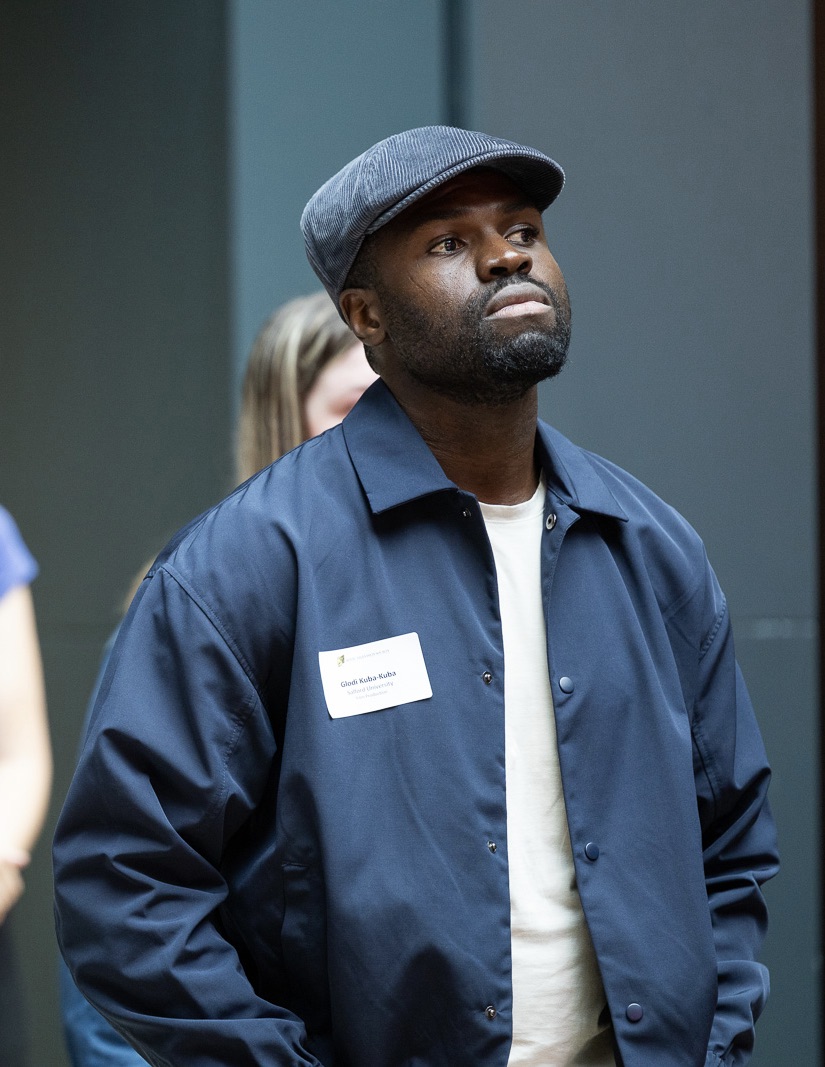
(Credit: Paul Hampartsoumian)
How do you think Uni would have been different without the scheme?
I've met some really great and interesting people. It gives you a bit of an insight into how people are getting into the industry and what we can do.
Who is your mentor, and how have they helped you so far?
Daniel Fajemisin-Duncan and Marlon Smith came as a writing pair. We had a great conversation the other day about writing tips and how to break into the industry, with just a little bit of encouragement. I want to do screenwriting and directing so we’ve been matched really well.
What would you say to someone considering applying to the scheme?
Do it. Don’t think. Just do it.
Watch our interview with Humans screenwriter and mentor Sam Vincent here.
Applications for the RTS bursary scheme are open until 31 July 2023. If you are interested in becoming a mentor, apply here.


